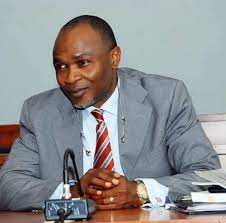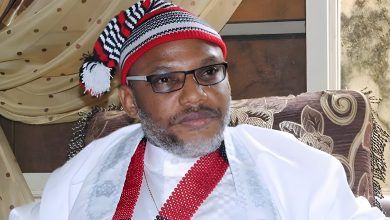
The Minority Leader of the House of Representatives, Hon. Kingsley Chinda, has described the monetisation of political party nominations as the most corrupt phase of Nigeria’s electoral process.
Speaking in Abuja on Tuesday during the public presentation and stakeholder engagement on the Cost of Politics and Political Inclusion Report, organised by the Westminster Foundation for Democracy (WFD), Chinda criticised the exorbitant costs of nomination forms and the financial barriers they create.
“The monetisation of party nominations is arguably the most corrupt phase of our electoral process,” he said. “We must ask ourselves the difficult question: must party nomination forms cost millions of naira? What exactly are we pricing?”
Chinda, who represents Obio/Akpor Federal Constituency in Rivers State, called for urgent reforms to strengthen internal democracy within political parties and reduce the financial burdens associated with seeking elective office. He advocated for the introduction of digital voting systems for party primaries, transparent delegate selection processes, and enforceable caps on internal campaign spending.
“We already have laws; what we lack is enforcement,” he added, referencing the Electoral Act’s prescribed spending limits, ranging from ₦70 million to ₦100 million for candidates and parties—which are often ignored without repercussions.
To tackle this challenge, Chinda proposed the establishment of an independent Electoral Offences Commission, along with real-time tracking of campaign expenditures, mandatory public disclosure of campaign funding sources, and strict penalties for violators, including disqualification from future elections.
“Moving beyond paper compliance is critical,” he noted. “Reforms to reduce the cost of politics are essential to broaden political participation and safeguard Nigeria’s democracy.”
In his opening remarks, WFD Country Director, Adebowale Olorunmola, warned that the escalating cost of electioneering in Nigeria poses a significant threat to inclusive governance.
“Our democracy thrives when diverse voices are heard, but the high cost of politics in Nigeria is silencing too many people,” he said.
According to Olorunmola, the WFD report offers crucial insights into how financial barriers hinder political participation, particularly for women and other underrepresented groups. He stressed that the goal of the report is not only to highlight the problem but to spark urgent conversations and concrete actions to lower the economic thresholds for political engagement.
He urged stakeholders to approach the issue with open minds and a shared commitment to building a more inclusive and representative political system.





